Who can i talk to to learn what these letters mean?
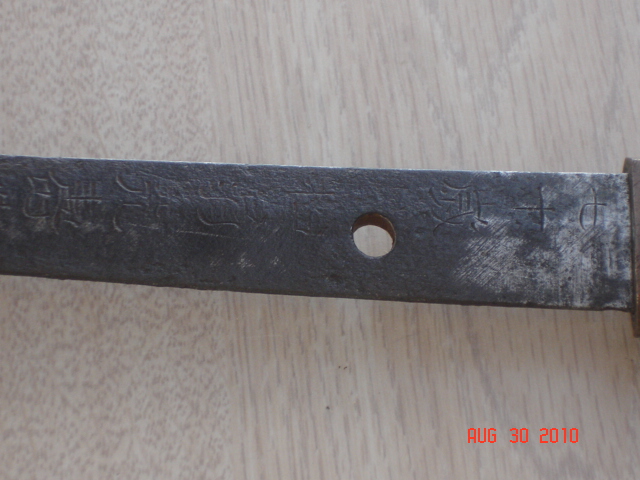
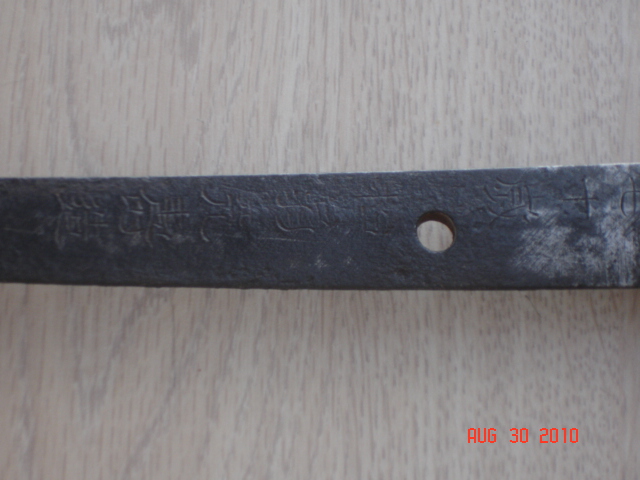
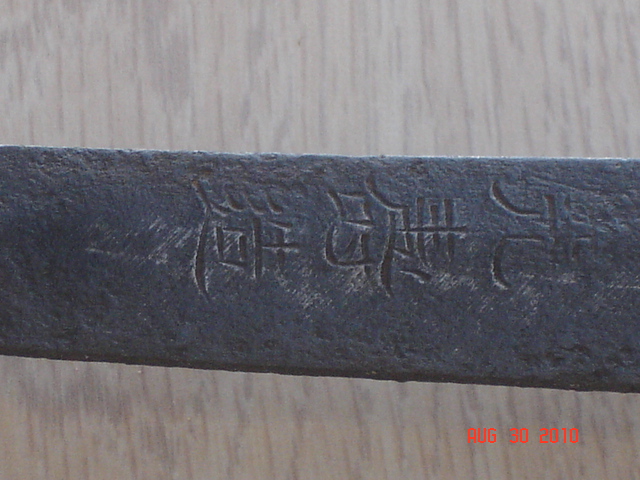
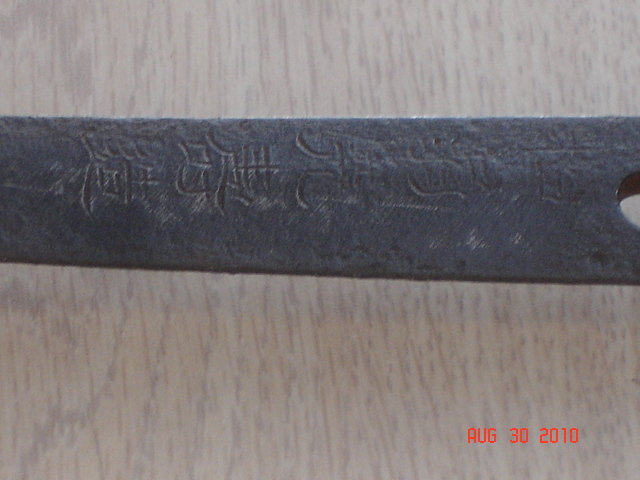
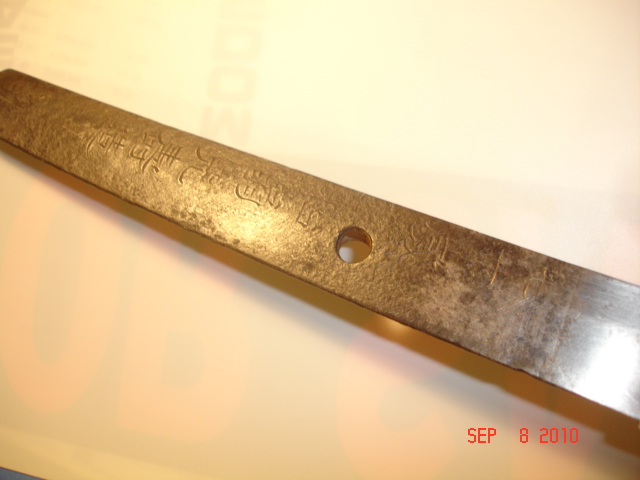
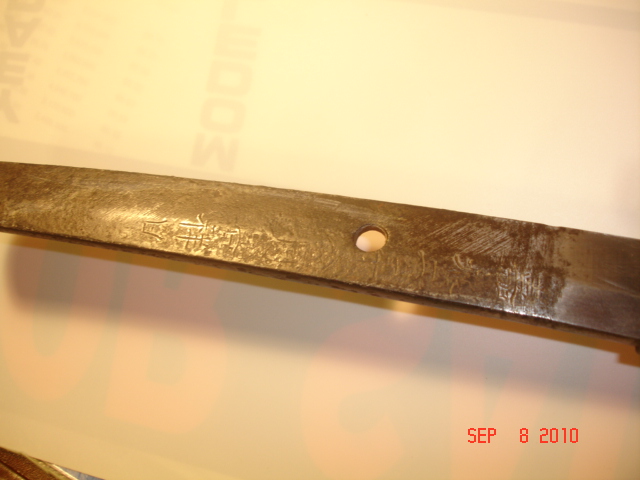
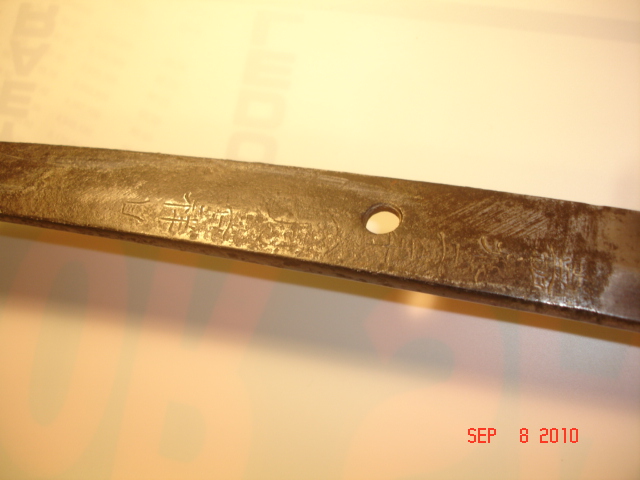







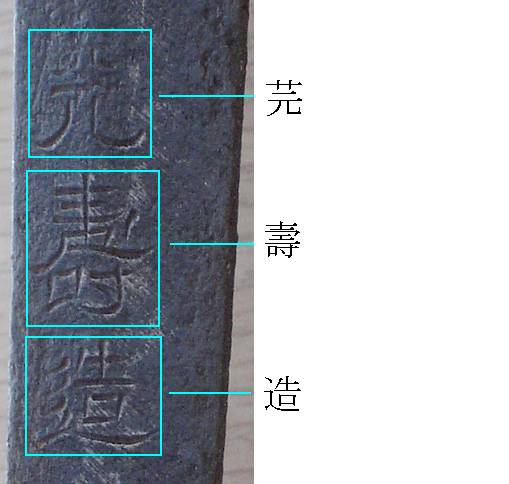
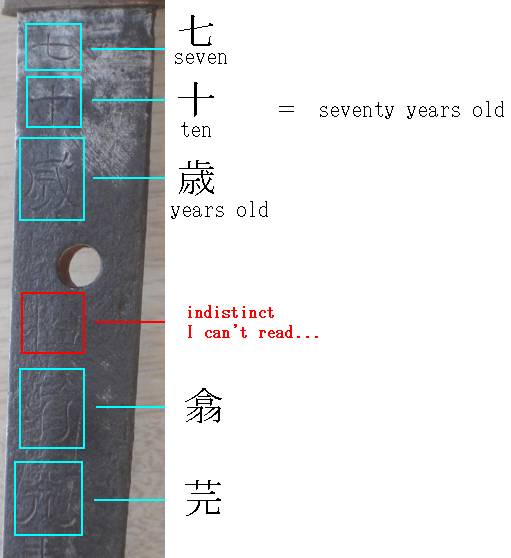
| Quote: |
| Who can i talk to to learn what these letters mean? |
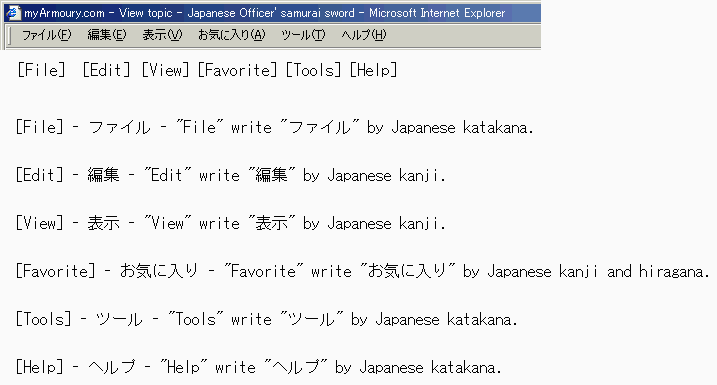
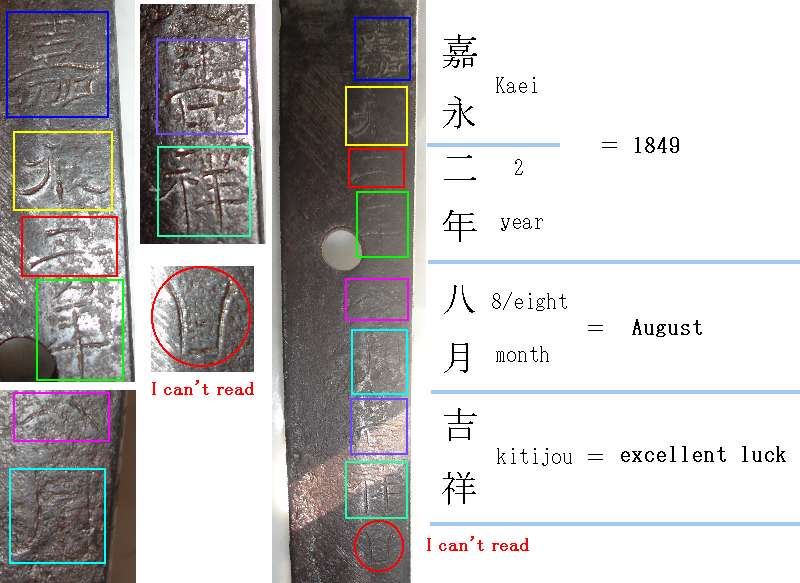
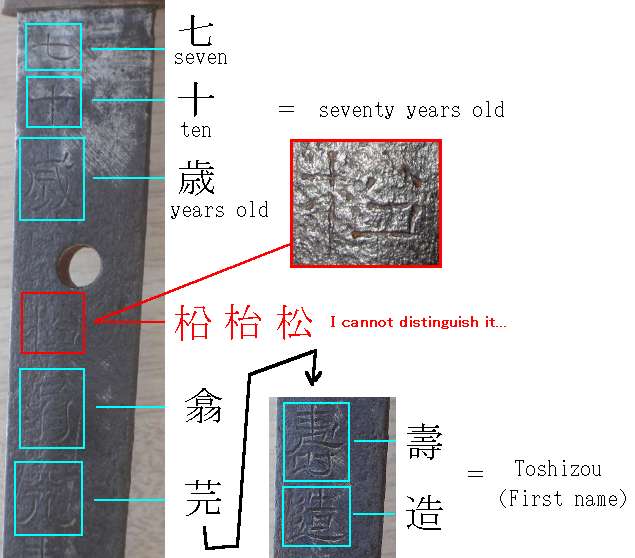
| Ushio Kawana wrote: |
| Hi :)
John mailed some phtos to me. And I was able to read the letters of the other side. :D It's mean "An August, 1849 excellent luck". Kaei was a Japanese era name... http://en.wikipedia.org/wiki/Kaei I was able to read the letters of the other side. It's mean "Seventy years old (family name) Toshizou" The family name was not readable to me. :( These kanji is old kanji. So it is hard to distinguish it... :( It is written as "An August, 1849 excellent luck" on the front(back) side. And it is written as "Seventy years old (family name) Toshizou" on the back(front) side. This sword may be memory of the birthday. :) thanks :) |
| Quote: |
| the only familly name that rings a bell with that first name is hijikata but i don't think it is what is engraved on that nakago... |
| Quote: |
| Am i the only one to see this??? on one of the picture i can clearly see the ''U'' like kanji and i see something in the ''U'' (sorry i don't know japanese) like a small bar... |
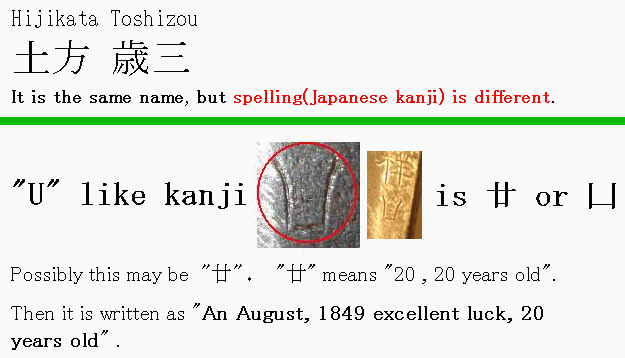
| Luka Borscak wrote: |
| That is not a blade, that is a tang. Through that hole goes a stick for fixing tsuka (grip). |
| Gottfried P. Doerler wrote: |
| ah ok, i was so fixed on the letters, didn`t look closely enough.
but that brings up another problem - you won`t see the inscript, when the tsuka is fixed. |